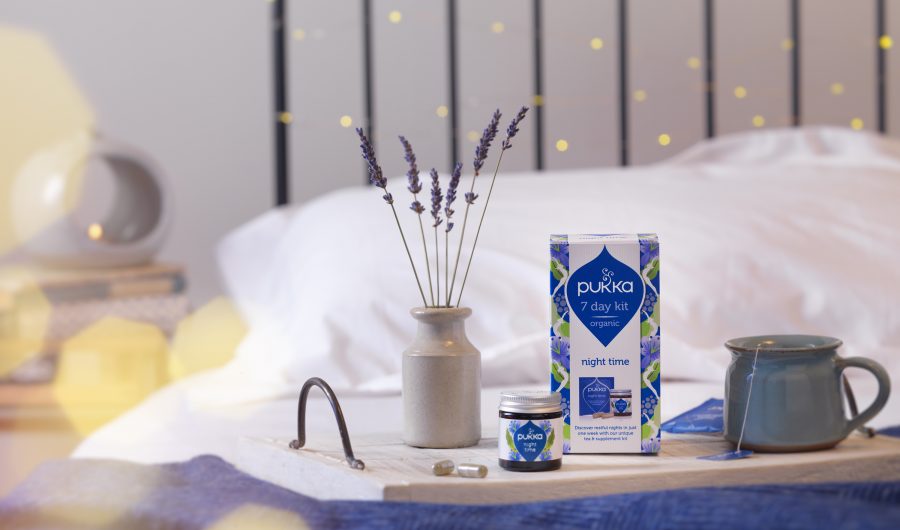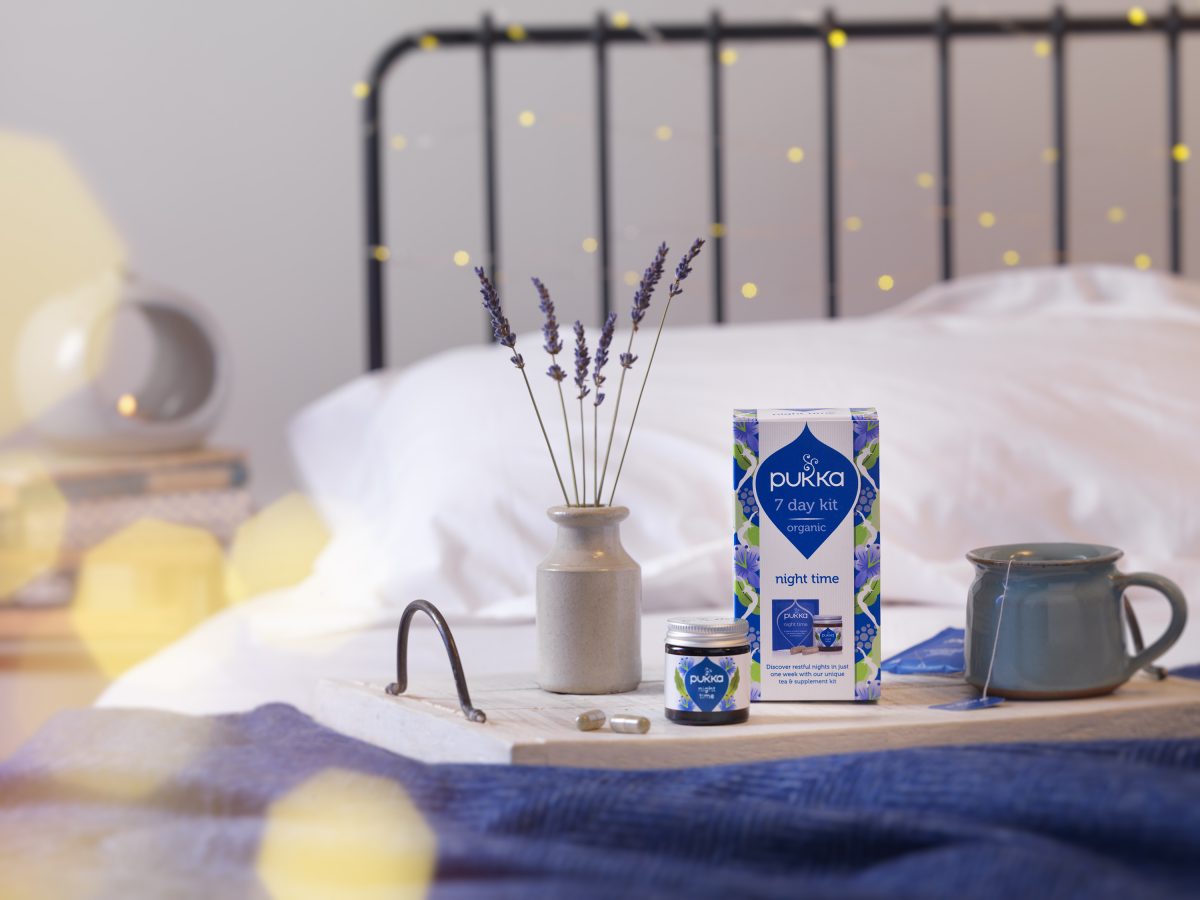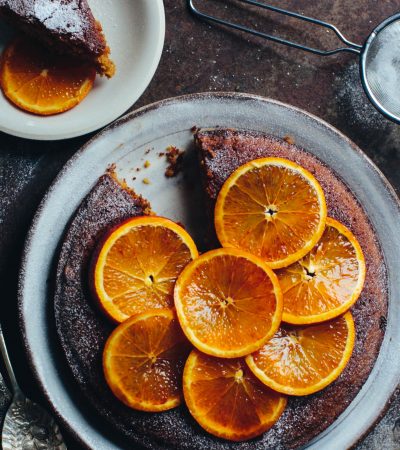Do you enjoy a great night’s sleep, every night? Or are you among the approximately 50% of UK adults who regularly get by on six hours or less? You may even think you’re getting a good night’s slumber, but that groggy feeling when you wake up – or the irresistible urge to lay your head down in the middle of the afternoon – is telling another story. All in all, it seems most of us could do with some extra help.
So, here’s your challenge: try these seven sleep-boosting tips for just seven days. Your sleep should improve – in fact, you may just get your best night sleep ever!
Total Blackout
Our bodies are programmed to feel wakeful in response to light, so even a soft light coming from outside your room can disrupt your snoozing. Shut out as much light as possible – install a blackout blind if you can. Turn off any electronic devices that have lights on them, or – even better – banish them from your bedroom altogether.
Dip into your herbal toolkit
Traditional herbs could be your secret solution to a great night’s shut-eye. Key players include valerian – a traditional ‘sleep herb’ with sedative properties, ashwagandha, which has stress and anxiety-relieving action, and chamomile – everyone’s favourite calming herb. Try them together in Pukka’s Night Time 7-Day Wellbeing Kit, which contains seven days’ supply of Pukka’s Night Time herbal tea and Night Time herbal capsules. Simply sip on the soothing tea and take two capsules before bed. And relax…
Dim the lights
For the same reason, we need darkness at night, turning down the lights at least two hours before bed helps us unwind and encourages sound slumber. Use dimmer switches if you have them, or buy some ambient light bulbs to put in lamps around your home.
Rethink your dinner
If your schedule means dining late in the evening, then listen up: you’ll do your sleep more favours by having a light meal rather than piling up a large plateful. But do include a decent serving of slow-releasing carbohydrates such as brown rice, sweet potato or oats: yes, it’s good to eat carbs in the evening, as they’ll help you feel sleepy.
Energise your morning
Do you feel sluggish in the morning, but full of energy in the evening? This is an indication that your circadian rhythm – your body’s 24-hour clock – is out of balance. Give it a helping hand by getting some exercise in the early morning. Working up a sweat first thing will stimulate release of the energy hormone cortisol, which should then decline throughout the day to help you feel sleepy in the evening.
Be unsocial
At least one hour before bed, come off social media, online chats, emails and preferably TV too. As well as the bright light from your phone or TV screen – which you can partially mitigate with blue light-blocking glasses – these are all a form of stimulation, which keeps your brain active and stops it switching off. Allow some peace and quiet into your evening, and read a book before bed instead.
Warm up your tootsies
At this time of year, climbing into bed between cold sheets is decidedly unpleasant, and it will only halt your drift into dreamland. Invest in an electric blanket – the warmth will help soothe you into a relaxing sleep, and the thought of a nice warm bed should encourage you to get there earlier, too. Alternatively, get snuggly by wearing socks in bed – clean and warm ones are best, and you can put them on after any romantic time with your partner, of course!
Settle down stress and anxiety with Ayurveda
Ashwagandha is the primary Ayurvedic medicinal herbal remedy prescribed to support the nervous system – specially beneficial for those who suffer with nervous anxiety – providing nourishment and strength to body and mind. For those that find their sleep gets sidetracked when they ares stressed, ashwagandha is beneficial to use to help reduce ‘hyperactive’ symptoms and induce a more restful and peaceful state of mind.
words by Charlotte Dormon, with expert comments from medical nutritionist, Naomi Beinart, PhD














